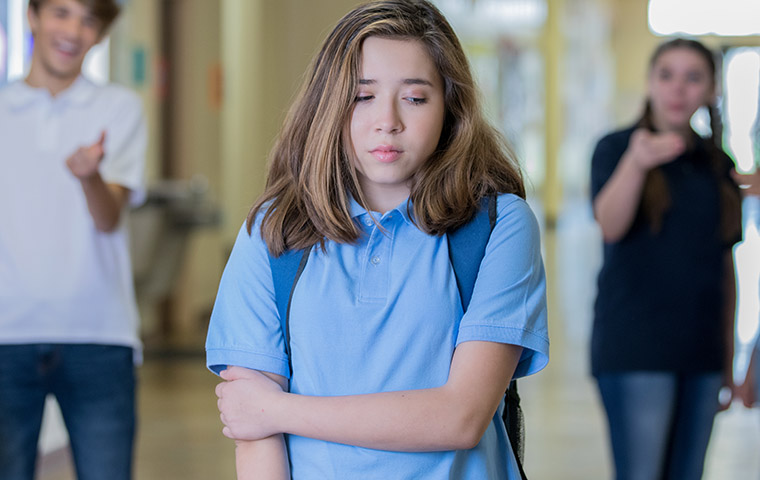The word "epidemic" is sometimes used to describe teen vaping. You have to wonder, does using electronic cigarettes – commonly called e-cigs or vapes – really qualify as an epidemic among teens? And if so, what can parents do about it?
Consider a few facts about vaping:
- Vapes are the most commonly used tobacco products among teens. About 10% of middle schoolers and 25% of high schoolers use vapes, and the numbers have been growing at an alarming rate.
- Vaping is marketed as being harmless to young people, but it is not. Most vapes contain addictive nicotine, plus more than 30 harmful chemicals, and dangerous heavy metals. Vape makers add flavorings to vape pods to make them more appealing and these chemicals have been linked to lung disease.
- Nicotine is very addictive and can harm adolescent brain development, especially the parts of the brain that control attention, learning, mood, and impulse control.
- Even though the term "vapor" is used, vapes do not produce water vapor. They produce an aerosol mist that contains ultra-fine particles that are breathed into the lungs. These particles can damage the lungs and make them more vulnerable to illness, including coronavirus.
- Many vapes are designed to look like a USB flash drive and can be easily hidden in a purse or backpack.
One thing all parents need to know is that smoking and vaping are illegal for teens in Texas. Possession of tobacco products and e-cigarettes is illegal for everyone under 21, with the exception of individuals 18 and older who are serving in the military.
Need parenting help now?
The Texas Parent Helpline is available 24/7.
- Call 833-680-0611
- Chat with us
- Text 833-680-0611

What to do if your teen is vaping
If your teen is in high school, there's a good chance he (or she) has already tried vaping or knows someone who vapes. If you find out your teen is vaping, you should respond at once. Take some time now to think through how to handle the situation if it arises.
- First, stay calm. If you are upset or angry, take some time to calm yourself before you talk with your teen. You should both put away your mobile devices, so you can focus and reiterate the serious nature of the discussion.
- Start the conversation by asking questions and listening respectfully to the answers. Experts recommend asking general questions to learn more: "Why did you try vaping? How does vaping make you feel? What's in the vapes you use? When do you vape? What do you think the dangers are?" Try not to interrupt or lecture as they are sharing.
- Respond by letting them know their health is the most important thing to you, and that you won't tolerate a dangerous and illegal activity like vaping. Share information about how vaping affects teenage brains and lungs to emphasize that you are acting to protect their health. You can also remind them they can be fined up to $100 and disciplined at school if they are caught vaping.
- Collect their vapes and refills and safely dispose of them.
- Take some time to consider what consequences are appropriate. For example, grounding or taking away video games for a month may not be sustainable. Appropriate consequences might be losing privileges, taking on additional chores, or being grounded for a shorter time.
- Impose consequences when you are calm and stay focused on the issue of vaping. Your teen may get emotional, so try not to let him pull you into a battle of wills.
- Involve him in a plan for how to avoid vaping. Teens who are involved in developing a plan are more likely to follow through. Examples might be helping him come up with other safe alternatives such as chewing gum, or brainstorming ideas about what to say to friends who vape.

According to the Centers for Disease Control and Prevention, THC-containing e-cigarettes have played a major role in the vaping outbreak.
How to prevent kids from vaping
Adolescence is "prime time" to start smoking or vaping. Parents can help teens and tweens avoid starting so they don't have to battle quitting later. It's okay to talk about smoking and vaping with your kids over time, in bits and pieces as you have the opportunity.
- Start the conversation about smoking and vaping early, before your kids enter middle school, and keep it going through their middle school and high school years. Make it clear that smoking and vaping are unhealthy habits that are not acceptable in your family.
- Remind kids that smoking and vaping are illegal in Texas for anyone under 21.
- Recognize that youth of all ages will be exposed to vaping, either from friends, family, or marketing messages, and they need to have information and skills to make good decisions.
- Get informed about the basics of vaping and be ready to answer their questions. If they have questions you can't answer, suggest you look them up together.
- Look for natural opportunities to bring up the topic, such as when you pass a vape store or see someone vaping in public.

How to set a positive example
Kids learn from their parents' example. You can set the stage by your own actions and attitudes.
- Create a trusting environment where your kids feel safe talking with you about difficult topics. Let them know you are there to listen and help, not to judge them.
- Give your kids positive feedback as often as possible. Even though teens sometimes act like they don't care what their parents think, in reality, they need to know you are paying attention and on their side.
- Stay involved with your teens and encourage them to participate in positive activities. For some kids, that may mean participating in sports, music, or other group activities. For others, it might help to get involved with a tobacco prevention organization like Say What! or another good cause. Helping kids focus on positive activities gives them strength and encouragement to avoid dangerous behaviors.
- If you smoke or vape, it's never too late to quit. There are resources that can help if you are ready to quit, and it makes a powerful impression on kids. If you're not ready to quit, you can share some of the challenges you have faced. If you used to smoke or vape, share with your kids how hard it was to quit.
Vaping is so new that many parents aren't familiar with the vocabulary, equipment, or dangers. Check out reliable websites such as e-cigarettes and vaping to get the facts and tips about how to protect your child.
How to get help for your teen
If your teen has moved beyond experimenting and needs help to quit smoking or vaping, connect him with resources:
- Talk to his doctor
- Call the Texas Quitline at 1-877-YES-QUIT
- Visit YesQuit.org
- Visit Worthit.org
It's not easy to quit smoking or vaping. Most people need more than one attempt. Let your teen know you are proud and ready to help. Support and encourage him every step of the way and remind him that every day without vaping is a healthier day.

Keep the conversation going
When you consider the facts, it may not matter whether vaping is an epidemic. Vaping is
popular, dangerous, and illegal, which means you need to be informed and know how to talk your kids to keep them safe.
Like a lot of tricky topics you deal with as a parent of teens, vaping is a subject you'll probably have to bring up more than once. Don't get discouraged if your teen doesn't want to talk about the dangers of vaping. Keep looking for opportunities to discuss the subject and stay engaged. Unlike cigarettes, vaping does not leave an odor. So stay connected and remind him that you care about him and his health.





